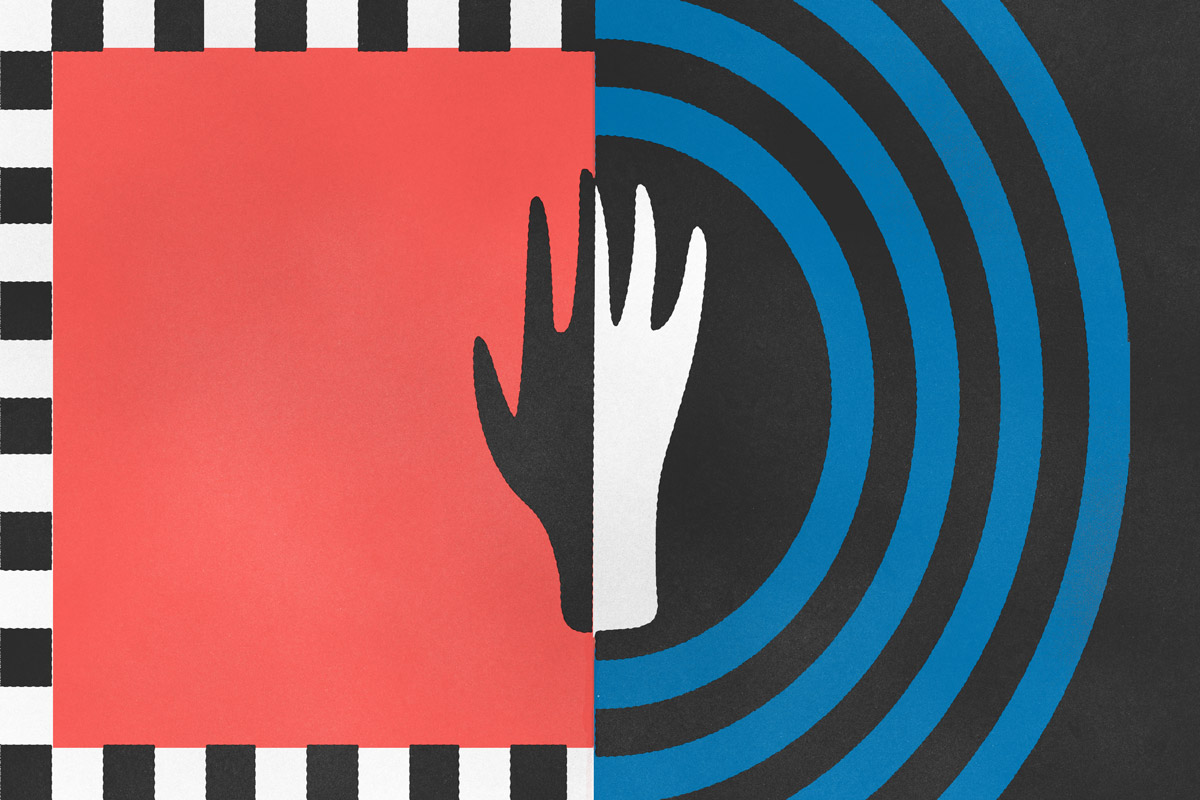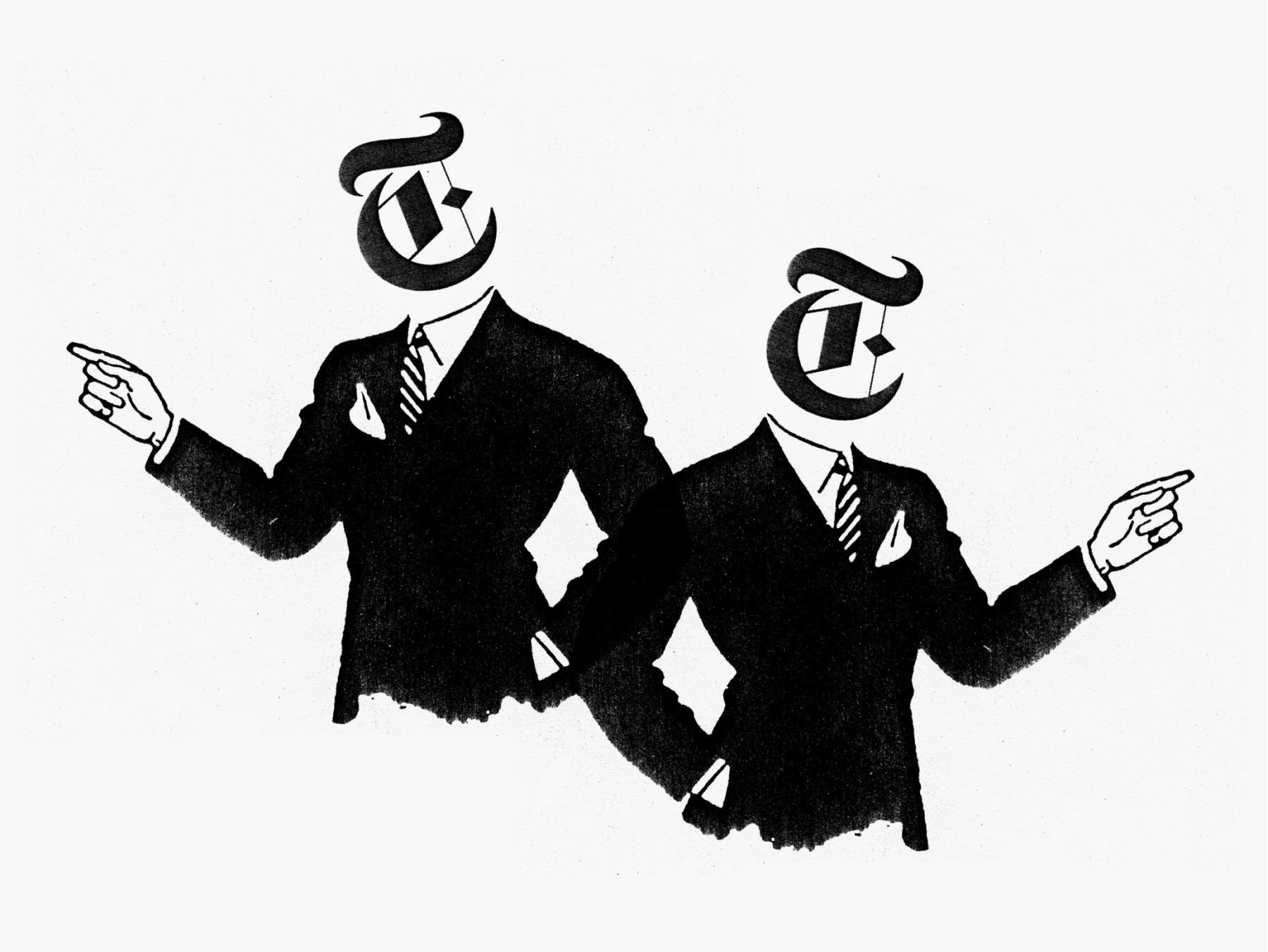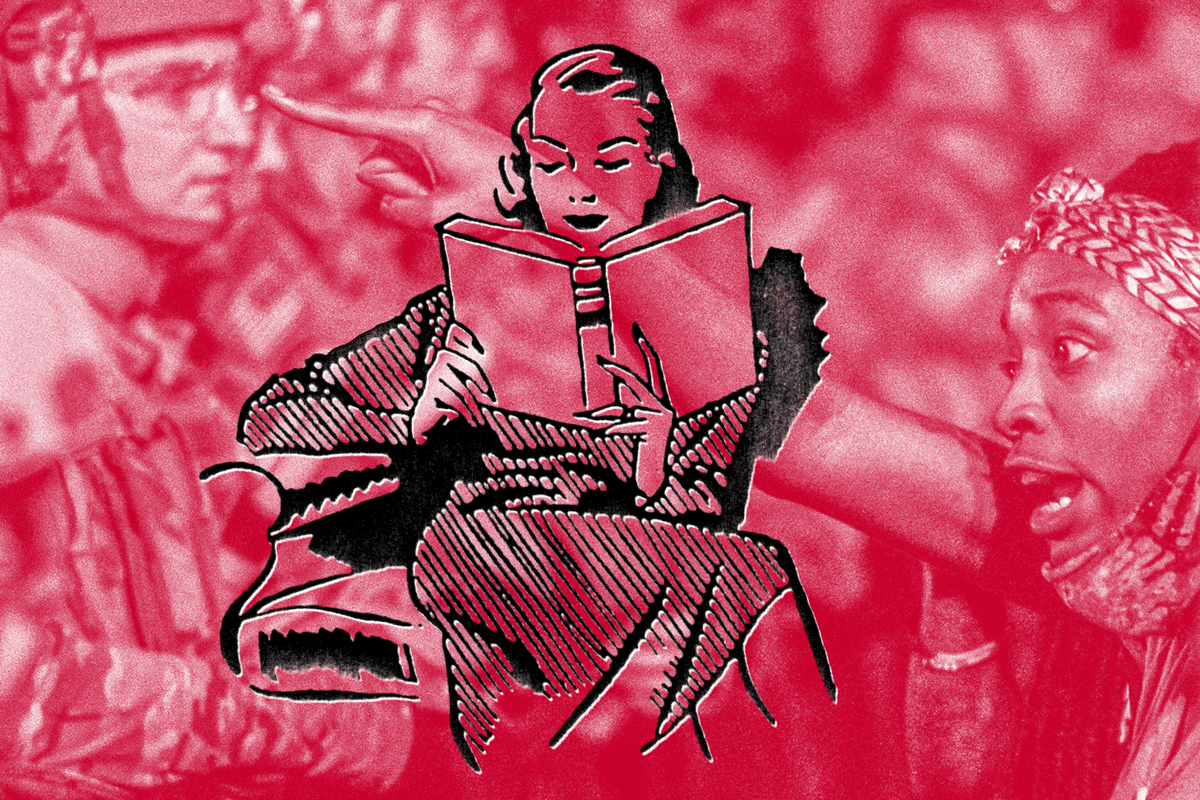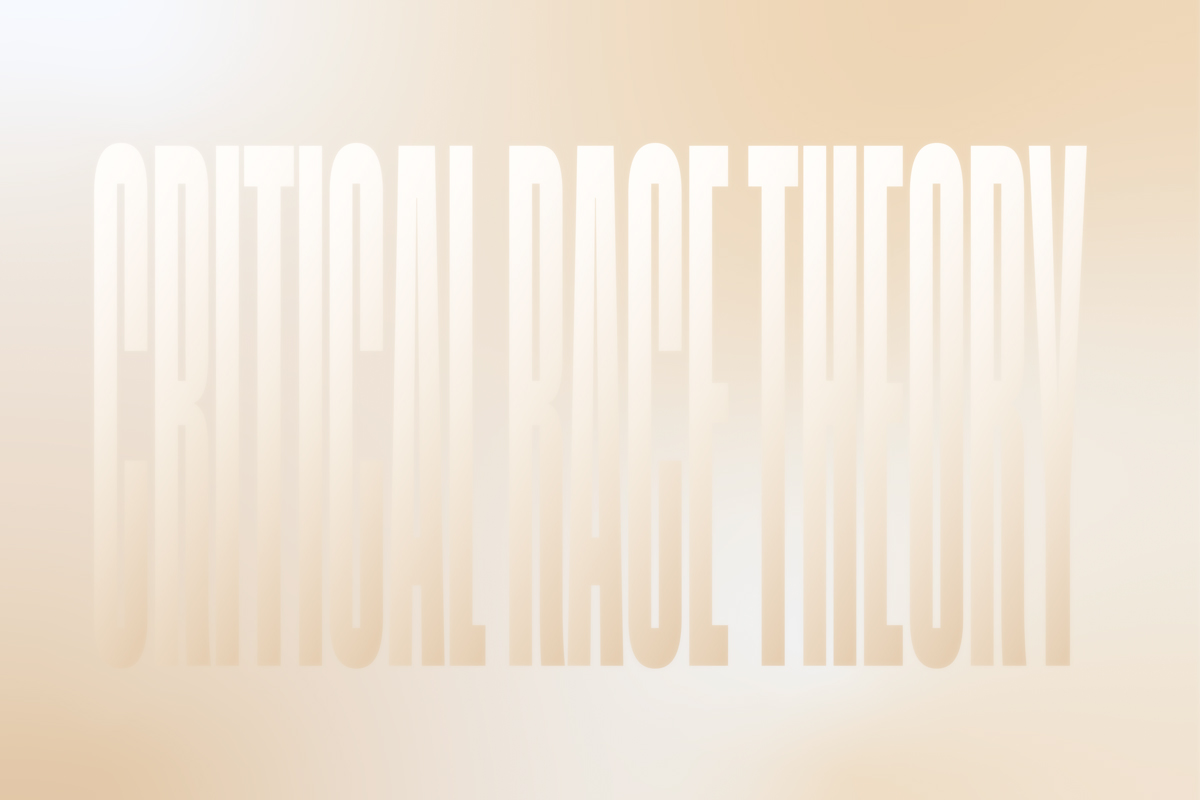“How does it feel to be a problem?” sociologist and historian W.E.B. DuBois asked in his 1903 classic, The Souls of Black Folk. DuBois deplored the tendency of conversations about the “negro problem” to conflate Black people with their problems. DuBois also lamented that anti-Black violence, together with Black Americans’ inequitable access to health care, housing and education, did not lead the country to rethink those structures as societal problems stemming from white supremacy; instead, the problem was Black people.
Lately, a new cohort of thinkers of the American right are seeking to unravel the overlapping “problems” of Blackness in an age of backlash by casually throwing over the construct of race in its entirety. On paper, this maneuver can be made to appear an enlightened and long-overdue bid in the intellectual house of conservatism to own up to the biological fiction of race, and embrace a notion of shared identity rooted in other, more genuine civic interests.
In reality, though, this glib school of sociocultural speculation—which goes by the dismissive and overconfident name of “racelessness”—is but the latest right-wing ploy to argue race and its multiple harms to American civic life out of existence. Various neoconservatives pursued this fanciful turn of argument from the 1970s onward, and right-wing provocateur Dinesh D’Souza distilled much of their work in his disheveled 1995 tract The End of Racism.
Instead of reckoning with American identity or human identity as a whole, right-wing theorists of cost-free racial assimilation have always sought to fall back into an abstracted and disembodied understanding of race—and thereby discredit any acknowledgement of race-consciousness as a dangerous and deviant strain of thinking to be read out of respectable political discourse. By sidestepping the salience of race entirely, the theory goes, the “problem” posed by Blackness—together with the many harmful, debilitating and lethal consequences that flow from it—can simply be wished away. In today’s fiercely pitched and race-inflected culture wars, we’re also assured that, along the way, the magic solvent of racelessness will dissolve the “divisive” and quasi-authoritarian precepts of “race essentialism,” as a freer, simpler America discards the rigid and destructive dictates of “wokeism” and “cancel culture.”
Manhattan Institute President Reihan Salam recently brought together the many unwieldy strands of right-wing race denialism in an Atlantic essay titled “America Needs Anti-Racialism.” Anti-racialism—a term functionally interchangeable with racelessness for Salam and other thinkers on the right—is a conservative rebuttal to what Salam calls “liberal anti-racism.” This latter hidebound orthodoxy, in Salam’s telling, is “grounded in the idea that raising the salience of race is essential to achieving racial justice”—the school of analysis, in short, that pundits on the right have long derided as “wokeness.” It naturally follows for such critics that anti-racialism is the panacea that will arrest the devastating spread of wokeness throughout our body politic; it is, as Salam defines it, the idea “that heightened race consciousness, and the racialization of disparities and differences that would obtain in any culturally plural society, more often than not cuts against fostering integration, civic harmony, and social progress.” In other words, anti-racialism is the belief that people who are aware of Blackness and white supremacy are the problem. In essence, the problem yet once more is a Black one.
Instead of grappling with DuBois’s still-urgent question, “how does it feel to be a problem?” anti-racialism merely flutters around it by denying the terms DuBois used to frame it. Thinkers in this tradition dismiss the consequences of race consciousness with airy, euphemistic formulations such as “I don’t see color,” “there is no race but the human race”—and of course, the standby right-wing talking point cribbed from Martin Luther King’s “I Have a Dream” oration: the mandate for Americans to judge one another “by the content of their character, not the color of their skin.” This latter mantra is wrenched from all intelligible political and historical context, militantly ignoring King’s own later qualifications of the sentiment as well as the invocation of this prophetic utterance as a future ideal, as opposed to the basis of a complacent racial status quo. All such exercises in rhetorical misdirection are a deliberate effort to cloak an anti-Black worldview in a noble appeal to a common “humanity,” or “ethnicity”; they all ultimately rely on the disqualification of “Black” from the spectrum of legible identities, and the corresponding displacement of Blackness beyond the boundaries of the human.
Speculative theories of racelessness are a deliberate effort to cloak an anti-Black worldview in a noble appeal to a common “humanity,” or “ethnicity”; they all ultimately rely on the disqualification of “Black” from the spectrum of legible identities.
Salam writes that anti-racialism “speaks to the emergence of a new multiethnic mainstream” because “American culture is no longer ‘white’ in any narrow sense.” He again dodges the DuBois imperative by leaving his key terms—“American culture,” “white” and “ethnicity”—undefined. This is another evasive rhetorical maneuver, since it’s exceedingly difficult to talk about American culture or whiteness without evoking the vast historical legacy of anti-Blackness. Salam suggests that America’s cultural origin story remains steeped in the notion of whiteness, but again refrains from naming the exact moment in time American culture stopped being white. When exactly was this so-called “new racial,” “multiethnic” terrain created and who—precisely—toils its landscape?
This all serves to underline the central question that the racelessness hypothesis resolutely avoids asking: just which race—precisely—is the problem? “All of them,” its adherents might reply—but Salam reverts to the basic binary scheme upholding two racial categories (or one, if you interpret “white” to mean “not Black”). He proposes that the center of this binary will not hold—but is at a loss to offer any more detailed or nuanced framework to replace it. In fact, as Salam mentions, even though one-fourth of Latinos identified as “people of color,” a much larger swath “preferred to see Hispanics as a group integrating into the American mainstream, one not overly bound by racial constraints but instead able to get ahead through hard work.”
It’s not hard to see the underlying racialized thinking lurking in this analysis. The rationale of rejecting the identity of a “person of color” in favor of an identity of raceless success-minded striving—“to get ahead through hard work”—reads on closer inspection as the repudiation of stigmatized Blackness, so as to be spared the stereotypes of idleness associated with Black people.
This dynamic speaks to the ongoing prevalence of anti-Blackness—not the causal evisceration of it in a harmonious new multiethnic polity. Because the institutionalization of racialized slavery in America is unprecedented in history, we forget that the transatlantic slave trade was world-wide and produced anti-Blackness across the globe. In the late seventeenth century, the Spanish crown institutionalized the purchase of whiteness through the practice known as gracias al sacar. In India, it’s common to see commercials for skin-whitening products.
Hispanic and Latino are identities possessing a historical and geographic coherence that Blackness has never achieved in the white-dominated West. You can straightforwardly discuss where Hispanics, Latinos, and Asians come from. Black as a race does not possess the same possibility of coherence in time and space—which is why many identities that profile predominantly as “ethnic” do not provide any secure safe haven from those associated with “race.”
In order to sort out the actual stakes of the “racelessness” hypothesis on the right, it’s crucial to go back to the terms of analysis originally laid out by DuBois. For what makes the notion of a politicized racial identity so deranging to so many conservative thinkers is the right’s own long-standing effort to keep Black Americans tightly circumscribed within the ambit of American “problems.”
To begin with, questions that recast Black people as “the Black problem” are not equivalent to victim blaming—a phrase that accompanies another standard move of racial stigmatization on the right holding that an insupportable “victim mentality” has held Black American progress toward equality. But as is the case with alternate ethnicities, the category of victims is legible because victims are seen as humans. The rote designation of Black people as existentially identical with their own problems thus rules out the understanding of Black people as legitimate victims because Black already renders the person outside the scope of what society considers to be human. The standard, putatively “neutral” definition of human in a racist society is a non-Black or raceless being who achieves social recognition independently of ascribed racial status. In other words, to be a true human, to have one’s being and plight register in the collective consciousness of the world, one must either not be Black or desire not to be Black.
Black life, Black presidents, Black healthcare, Black studies—any nouns modified with Black—all add up at best to a non-signifying concept in conservative politics; at worst, all such modified categories of American experience represent a defection from a racially innocent national myth. That’s because Republicans view any practice of Black allyship within white communities as white abandonment. This is the largely overlooked dynamic behind the explosion of anti-Black sentiment on the right since the Trump administration and Christopher Rufo, a Manhattan Institute fellow and Reihan Salam’s most notorious race-bating colleague, launched the right-wing culture war on critical race theory (CRT) in 2020.
CRT originated as a method to analyze the ways racism is codified into American law; however, the architects of this white backlash movement assail CRT as anti-American and an existential threat to an idealized national unity—together with the 1619 Project, which aims “to reframe the country’s history by placing the consequences of slavery and the contributions of black Americans at the very center of our national narrative.” This reframing of laws and America’s narrative ruptures the psyches of conservatives because it would require them to critically examine their own identities so as to force them to grapple with what it means to be an American and what it means to be white.
The backlash targeting all things Black reveals a historic antagonism that Dubois captured in his 1897 essay, The Conversation of Races. “What, after all, am I? Am I an American or am I a Negro? Can I be both? Or is it my duty to cease to be a Negro as soon as possible and be an American?” We might reword DuBois’s lament in today’s political language roughly as follows: “how does one be a good American without being anti-Black?”
We saw these core tensions of Black American identity unfold in real time during former NFL quarterback Colin Kaepernick’s protest of the police murder of unarmed Black Americans. During the protests, Donald Trump referred to Kaepernick—who was advised by a veteran to kneel instead of sitting during the anthem—as a “son of a bitch,” and suggested Kaepernick should find “another country.” Trump’s reactions, along with those of the millions of other Americans who disowned Kaepernick’s actions, served to reinforce the terms that Kaepernick was challenging: They re-inscribed the idea of American identity as cognate with the organized state murder of Black Americans.
These bleak dynamics of racecraft—as the historian Barbara Fields has dubbed it—cannot be dislodged by asserting a transcendental model of anti-racialism, post-racialism, or racelessness. It’s important to keep this grim object lesson in mind in working through the sunny claims of ethnic empowerment routinely asserted in the name of anti-racialism. Salam’s views on anti-racialism are in conversation with Sheena Michele Mason’s theory of racelessness, a framework that asserts the undoing of racism requires the undoing of race. Mason argues “everyone is raceless. Racism includes the belief in race as the biological or a construction, and the practice of racialization. Racism is not everywhere and is not the cause for every perceived ‘racial’ disparity or negative interaction. Racism can be overcome.” According to Mason, “seeing our fellow humans in racial terms—seeing them as ‘raced’—actually creates ‘race.’ That is, understanding human differences (which are attributable to culture, ethnicity, class, and other factors) in either benignly ‘racial’ or malignantly ‘racist’ ways creates and maintains ‘race.’”
Again, it is worth restating that race itself does not coerce people to manifest racial hatred. Rather, it’s the values society bestows on race—and as we’ve seen, the assertion of a race-independent ethnic identity does not transcend these broader social forces.
We might reword DuBois’s lament in today’s political language roughly as follows: “how does one be a good American without being anti-Black?”
Salam’s contention that the problem that stifles racial progress might be “the brightness of the boundaries separating minority ethnic groups from the societal mainstream” echoes Mason’s belief that “people misname racism, culture, class, or ethnicity and call those social constructions ‘race.’ ” Here, Mason and Salam both seek to propound a new theory of identity based on a flawed exchange. They deride race, trade it in for ethnicity, and venerate a universal category of the “human.”
If race is problematic, then the faux-universalist category of “human” is a problem too. Employing it uncritically positions oneself in a dilemma that Jamaican writer and cultural theorist Sylvia Wynter described in an essay titled “On How We Mistook The Map”: “The fact that one cannot revalorize oneself in the terms of one’s racial blackness and therefore of one’s biological characteristics, however inversely so, given that it is precisely the biocentric nature of the sociogenic code of our present genre of being human, which imperatively calls for the devalorization of the characteristic of blackness.”
Wynter’s dilemma recalls Dubois’s impasse between being Black and being an American. And her juxtaposition of the categories of humanity and Blackness further serves to thwart Mason’s and Salam’s abstracted quest for a respite from the biological fiction of race in the sociogenic genre of “human.”
If the requisite for coherence in the category of human is racelessness, then being human—a category that is deeply rooted in anti-Black connotations—ultimately hinges on what Wynter calls “the devalorization of the characteristics of Blackness.” If it is impossible to redeem Black identity through some version of the racialized and ideological derogation of Black people as “sly, sluggish, and neglectful”—as Carl Linnaeus, the “father of modern taxonomy” puts it—it is also impossible to revalorize oneself through the European, sociogenic genre of being “human.”
As this reflection suggests, human, as the category has worked out alongside Western patterns of racial suppression and colonial subjugation, actually designates a specific historical ethno-class formed through exclusion, and enforced through power and violence. Nor is this dynamic confined any longer to the white-dominated Western traditions that originally incubated it. If being human in some fundamental way entails the systematic dehumanization of other humans, perhaps there is something wrong with that category at its foundation. In other words, working backward from race to human only brings us to the start of the problem, not the end of it.
A DuBoisian inquisition of Wynter’s work might ask, “how can one be human and be Black?” The question is at the center of the tension between Blackness and Americanness.
“If I strive as a Negro, am I not perpetuating the very cleft that threatens and separates Black and White America?” DuBois asked in Conversations on Races. “Is not my only possible practical aim the subduction of all that is Negro in me to the American?
Today we might ask as a corollary: If Black people need to distance ourselves from, and internally suppress, all that is Black in us to bring their American and human identities into coherent alignment, what exactly becomes of the world? This is one of the countless questions that the high-flown invocation of “racelessness” has no good answer for.
Anthony Conwright is a writer and AAPF fellow living in New York City. Follow him on Twitter @aeconwright.



